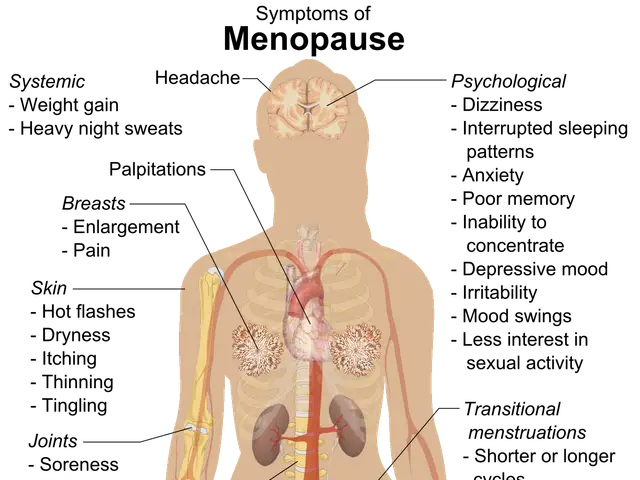Grounding or Earthing: Exploring the Possible Health Advantages Gained from Connecting Directly with the Earth
In today's fast-paced world, finding ways to reduce stress and improve overall health is more important than ever. One practice gaining attention is grounding, also known as earthing, a simple yet profound method that connects us directly with the Earth's surface.
The process of grounding involves physically touching the Earth, whether by walking barefoot on grass, sand, or soil, or using grounding products like mats, sheets, or shoes. The Earth has a slight negative charge, and our bodies can build up positive charges, especially when exposed to artificial EMFs from electronic devices. When we connect with the Earth, the flow of electrons helps neutralize these charges, potentially balancing our body's internal electrical state.
Research suggests that grounding offers numerous health benefits. For instance, it has been linked to a reduction in inflammation, a key factor in many major diseases. Numerous peer-reviewed studies indicate that grounding reduces or prevents inflammatory responses, such as a randomized, double-blind pilot study that found one hour of contact with the Earth's surface improved inflammation and blood flow.
Grounding may also enhance immune function, potentially aiding wound healing and reducing risks associated with chronic inflammatory and autoimmune diseases. Moreover, it has been shown to lower cortisol levels, the body's primary stress hormone, thereby reducing emotional stress and promoting a sense of calmness.
In addition, grounding has been found to improve sleep quality and normalize biological rhythms. By synchronizing the body with the Earth's natural frequency (the Schumann resonance at about 7.83 Hz), it may help regulate circadian rhythms and improve sleep quality. A study that found participants who slept on a grounding mat had a more regular circadian cortisol rhythm supports this claim.
Other documented benefits of grounding include improved blood circulation, reduced chronic pain, faster injury recovery, lowered blood pressure, relief from muscle tension and headaches, support for adrenal health, and protection from electromagnetic fields (EMFs).
While research is still in its early stages, the accumulating scientific evidence supports grounding as a natural, non-invasive intervention that can contribute to overall health and wellbeing by restoring electrical balance and reducing oxidative stress and inflammation in the body.
To reap the full benefits of grounding, it's recommended to start with small steps and combine it with other relaxation techniques like yoga, meditation, and mindfulness for enhanced benefits. Choose clean, natural environments for grounding to avoid exposure to chemicals or pollutants.
However, it's essential to consult a doctor before using grounding products if you have an implanted medical device like a pacemaker. While grounding has shown promising results, it should be used as a complementary practice, not a replacement for medical treatment.
Incorporating grounding into your wellness routine can support both physical and mental health. Grounding may also help regulate sleep patterns, allowing for more consistent, restorative rest, and has a calming effect on the autonomic nervous system, the part of our nervous system responsible for regulating stress.
As we navigate through our busy lives, finding ways to connect with nature and reduce stress is crucial. Grounding offers a simple, accessible method to do just that, potentially improving our health and wellbeing in the process.
- In addition to reducing stress, findings from environmental science indicate that grounding, or earthing, may also improve sleep quality and normalize biological rhythms by synchronizing the body with the Earth's natural frequency.
- Beyond physical health benefits, therapies and treatments like grounding have shown a potential in mental health with evidence of lowering cortisol levels, thereby reducing emotional stress and promoting a sense of calmness.
- Alongside fitness-and-exercise and nutrition, incorporating grounding into one's wellness routine can support overall health-and-wellness by restoring electrical balance and reducing oxidative stress and inflammation in the body.
- As science continues to explore the various benefits of grounding, it's crucial to remember that, while promising, grounding should be used as a complementary practice, not a replacement for medical treatment when dealing with health concerns.







